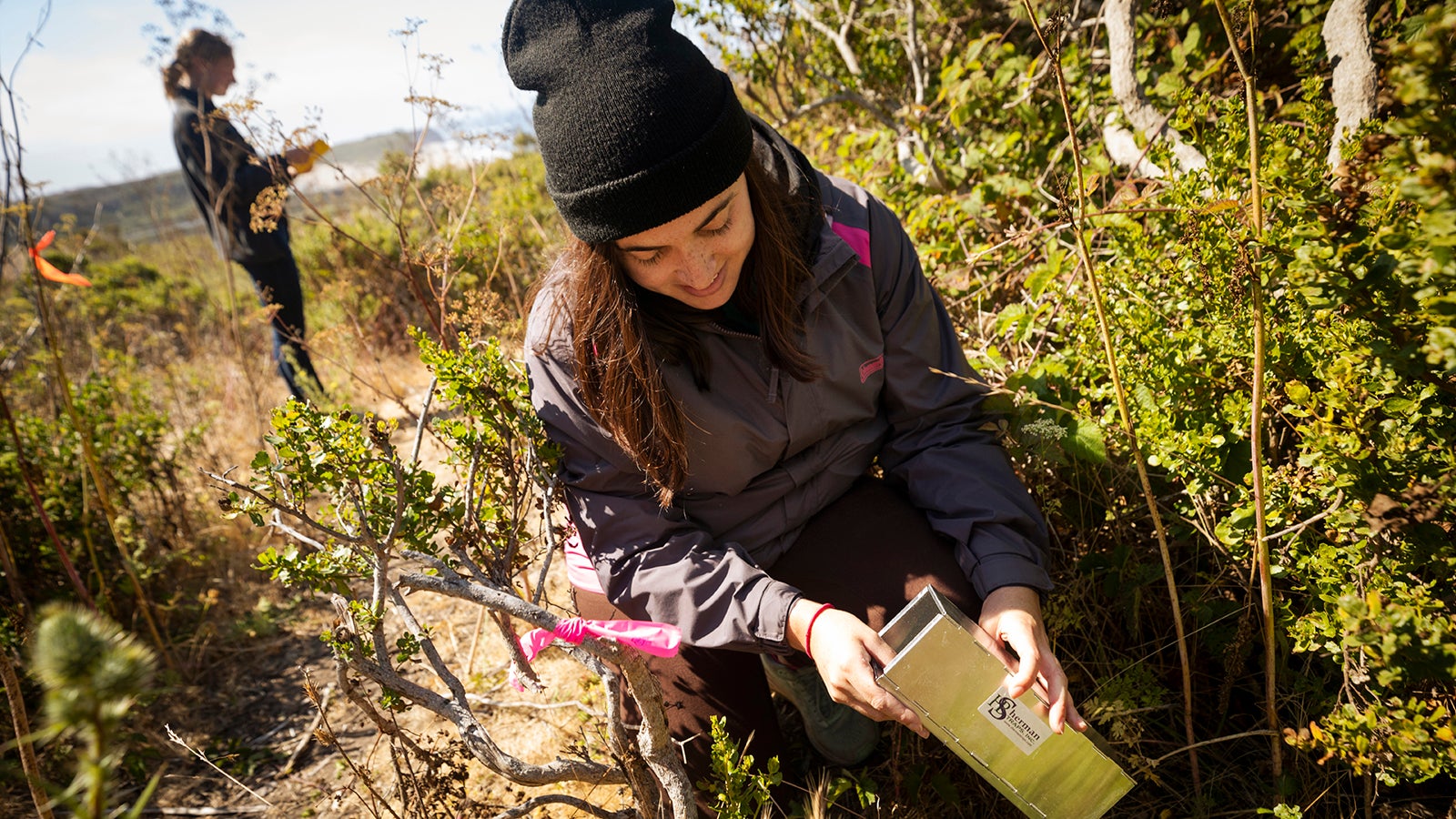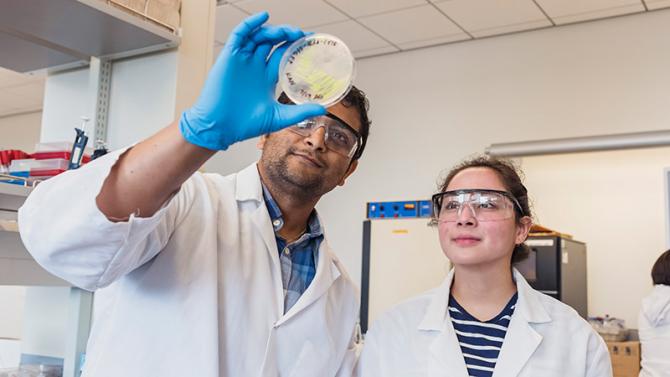Biological Sciences
Bailey College of Science and Mathematics
Biology is the scientific study of life in all its forms including animals, plants and microbes. Biologists engage in this study for a number of purposes, including finding ways to treat disease, protecting animals and their environments and more.
San Luis Obispo, California
The biological sciences curriculum includes courses spanning all levels of biology from cells to ecosystems with an emphasis on hands-on training in the laboratory and the field. Students in the program take course work in anatomy, botany, microbiology, marine science and animal physiology. The program provides opportunities for independent research under faculty guidance, including a requirement for a senior project.
More than three-fourths of our courses include a lab section. Examples include:
- Animal Anatomy and Physiology
- Cell and Molecular Biology
- Ecology and Evolution
- Environmental Physiology
- Plant Ecology
- Wildlife Ecology
These labs prepare you for a wide variety of undergraduate research opportunities with Cal Poly faculty.
Anatomy and Physiology
This concentration offers courses required for those preparing for a career in medicine and health including physicians, dentists, physician assistants, nurses, dental assistants and more. It emphasizes learning and discoveries about the structure and function of animal and human bodies.
Ecology, Evolution, Biodiversity and Conservation
This concentration focuses on the ecology and evolution of the earth's biodiversity and teaches the skills necessary to participate in the conservation of wildlife, plants and their habitats. This area of concentration is recommended for those pursuing field research or professional certification by entities such as The Wildlife Society and the Ecological Society of America.
Molecular and Cellular Biology
This concentration focuses on how genes and their products work to create cellular structures, activities, and interactions in organisms ranging from microbes to plants and animals. Molecular and cellular biology is a cornerstone for most biotechnology, medical, and pharmaceutical industry careers and is an important tool for those interested in graduate or professional study in biology, microbiology, biochemistry, many of the health professions, and other related fields.
About the Program

From studying molecules in the lab to experiencing ecosystems in the field, you will receive a broad education in the biological sciences.
In addition to general course work, you will choose a concentration focusing on your area of interest and career goals. For those hoping to pursue medicine or other health professions, you will learn about the structures and functions of tissues and organs in humans and other animals as well as molecular and cellular biology. Others can focus on ecology, evolution, biodiversity and conservation. Beyond your classroom and lab work, you will also have the opportunity to work directly with faculty members on real-world research using the latest technology, all as an undergraduate.
Learn by Doing
Your time will be spent collecting and analyzing data or running experiments on modern equipment – not sitting at desks. The diverse habitat of California's Central Coast offers many opportunities for ecological fieldwork which allows you to learn to identify and understand organisms in the field and solve environmental problems. If medical school is in your future, our cadaver lab and other specialized anatomy classes give you hands-on experiences usually reserved for first-year med school students.

Study Bacteria
Our Graduates
Many of our graduates go on to Ph.D. and M.D. programs at prestigious universities throughout California and across the country. Graduates also pursue careers in teaching, laboratory technology, public health, biotechnology research and manufacturing, wildlife management, consulting, agriculture, park and forest services, and more.
